Seven months after Renault UK announced a model and dealer cull, it says everything is on track for a return to profitability by the end of 2013.
It’s been a difficult few months for the French manufacturer, with UK car fleet registrations down by around 60%. The first six months of the year saw 7,896 units registered to fleet, compared to 19,674 for the same period in 2011.
And last week, it reported global first-half year profits had fallen by 39% to £615 million, down from £980 million a year earlier, blaming a deteriorating demand in Europe because of the sovereign debt crisis.
Renault discontinued the Kangoo car, Modus, Wind Roadster, Laguna and Espace in the UK from February, while the dealer network has been reduced from 190 to around 135. The business has been restructured and it has reduced its reliance on less profitable elements of the fleet market such as daily rental and Motability.
Sales director Darren Payne said: “We’re pleased with our performance. We’re on budget for 2012 in terms of our share and profit aspirations, the structure of our network and our product portfolio.”
Staff numbers have been reduced by a third and, while Payne says it hasn’t been easy, he stresses that it has enabled them to achieve the results they we’re looking for.
As of the end of June, it had a 1.85% share of the overall car market and 1.47% of the fleet market – down from 3.58% and 3.66% in 2011, according to SMMT figures.
Payne said: “We’re still very much in the fleet sector; we just choose not to be as strong in certain channels.”
He can at least look forward to reaping the potential rewards of a refreshed Megane, with new low emission, fuel-efficient engines that were launched in April.
Fleet orders currently account for 36% of the overall mix, but Payne expects that to increase to around 50%.
However, he admits that Renault has struggled to raise awareness of its eco branding and its favourable comparison with competitors. “We’re trying to get that message across, but we don’t seem to be able to do that as well as some of the other manufacturers,” said Payne.
“The fact is we’ve got some of the best cars on the market whether that’s in terms of spec, CO2 or MPG achieved.”
The new Clio will be available to order from the final quarter of this year. He said: “I’m sure there will be a lot of fleets interested in it. We’ve had some fantastic reaction to the product.”
Meanwhile Dacia, described by Payne as Renault’s “shockingly affordable brand”, with an £8,995 entry price for the Duster, is also available to order now.
But, while sales of electric vehicles have failed to capture the fleet imagination, Renault still accounts for more than 31% of the European market. It’s ‘zero emission’ product line-up currently includes Twizy, Kangoo and Fluence, with Zoe due later this year.
“The market is taking longer to build than originally anticipated,” he said. Renault’s UK EV sales have hit the 400 mark, with the lion’s share being divided between Kangoo and Twizy. But Payne is adamant that the sector will grow. He expects Zoe to be a “game-changer”.
Nevertheless, manufacturers of EVs were left frustrated with the Budget announcement that the five-year benefit-in-kind exemption for zero emission cars will end in April 2015.
“It was disappointing and is something that we will continue to lobby on. But we believe the model is still there which makes our vehicles viable, especially with our battery lease concept,” Payne said.
However, Renault is enjoying real success in the LCV sector. “In the last year it’s been our strongest brand.”
Renault has been number one in Europe for the 15th year on the trot and it currently has a 7% share of the UK van market. On paper, it’s perhaps the one piece of good news for Renault, but Payne is bullish about its future prospects. “Next year is the year where we come back,” he said.









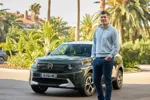
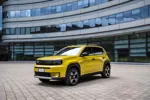


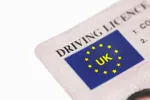
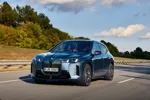


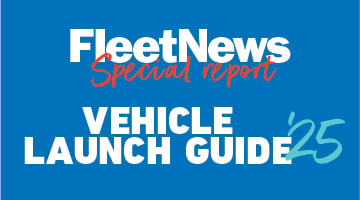

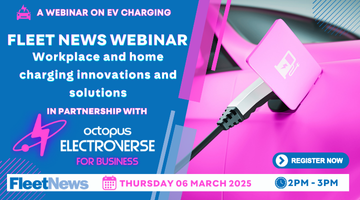

Crossply - 10/08/2012 17:20
It's slightly worrying for Renault that it has invested so heavily in electric vehicles, that incentives for these now seem to be time-limited at the very least, while the rest of the range is dwindling. It would give a fleet even less confidence to invest in the brand in future - for cars, at least.